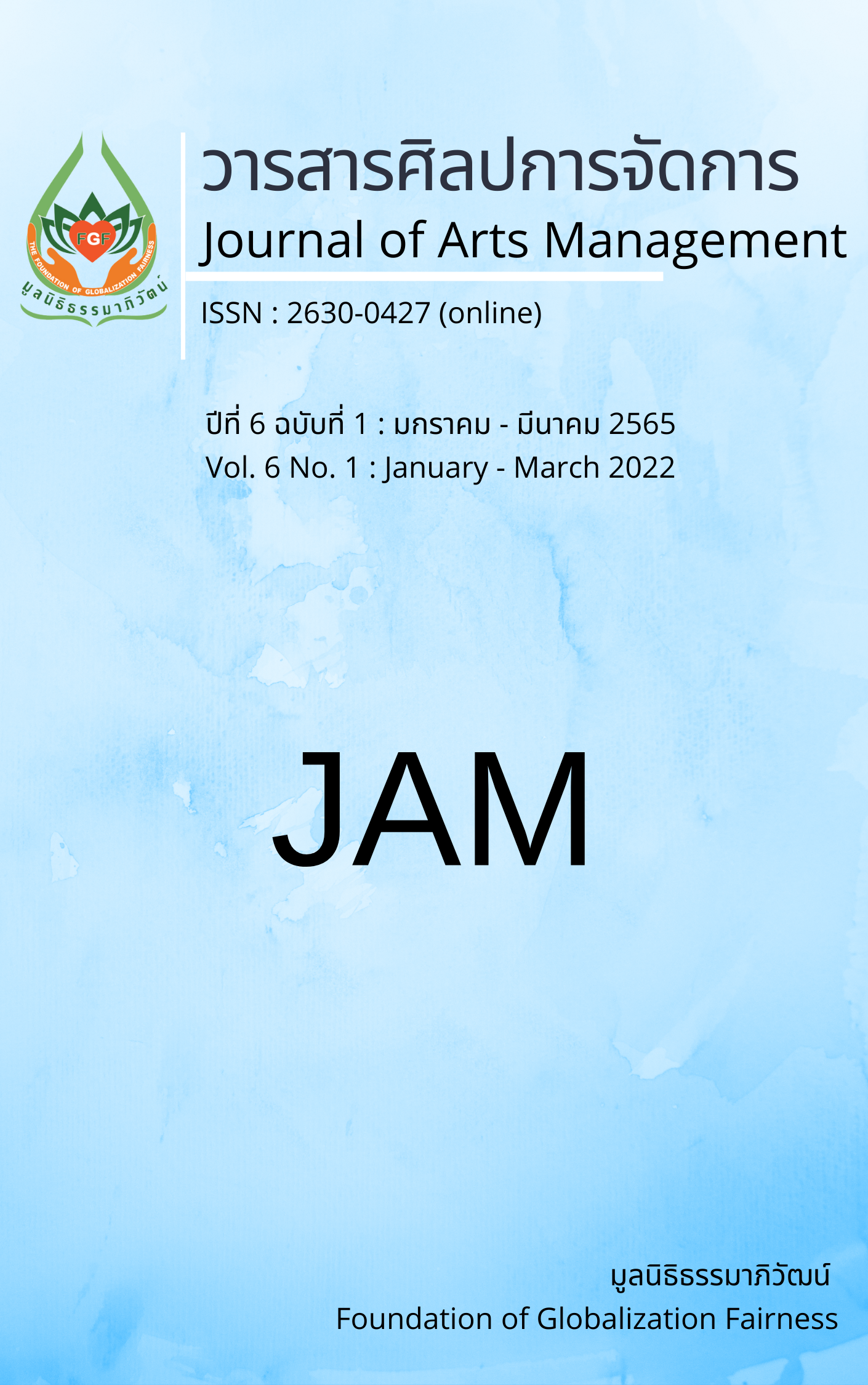The Influencing of Causal Factors on Democratic Behavior of Students of Rajamangala University of Technology Suvarnabhumi
Main Article Content
Abstract
This article aimed to 1) study the perception of democratic principles of the students of Rajamangala University of Technology Suvarnabhumi; 2) study democratic behavior of the students of Rajamangala University of Technology Suvarnabhumi; and 3) study the causal factors influencing democratic behavior of the students of Rajamangala University of Technology Suvarnabhumi. This research was a quantitative research in which the sample group consisted of 400 students of Rajamangala University of Technology Suvarnabhumi, were obtained by using the analysis criteria of the linear relational structure equations and multistage randomization. The research instrument was a questionnaire and the statistics used in the research were frequency distribution, percentage value, mean, standard deviation, and structural equation models.
The research results were found as follows: 1) perception of democratic principles among the students of Rajamangala University of Technology Suvarnabhumi was overall at a high level; 2) democratic behavior of students of Rajamangala University of Technology Suvarnabhumi was overall at a high level; and 3) the causal factors affecting the democratic behavior of the students of Rajamangala University of Technology Suvarnabhumi are factors of students' perception of democratic principles directly influencing students' democratic behavior with a coefficient of influence of 0.624, and the student democratic factor directly influencing students' democratic behavior with a coefficient of influence of 0.347. The consideration of the conformity of the structural equation model resulted respectively, got statistical values according to the criteria. The forecast coefficient = 0.69 showed that the developed causal relationship was consistent with the empirical data. Therefore, it is possible to predict that the formation of the perception of democratic principles and democracy cultivation among students can develop students’ democratic behavior.
Article Details

This work is licensed under a Creative Commons Attribution-NonCommercial-NoDerivatives 4.0 International License.
Views and opinions appearing in articles in the Journal of Arts of Management It is the responsibility of the author of the article. and does not constitute the view and responsibility of the editorial team I agree that the article is copyright of the Arts and Management Journal.
References
Campbell, D. J. (2008). The basic concept for the democracy ranking of the quality of democracy. Democracy Ranking.
Damrongpanit, S. (2012). Analysis in behavioral and social sciences by Mplus program. Maha Sarakham Rajabhat University.
Democratic Education Center. (2020, January 10). Principles of Democracy. Democratic Education Center. https://www.ect.go.th/dec/ewt_news.php?nid=71&filename=index
Eremenko, M. (2011). Political participation: Model by Verba in the EU and Russia. National Research University. http://www.culturaldiplomacy.org/academy/content/pdf/participant-papers/eu/Maria-Eremenko-Political-participation-Model-by-Verba-in-the-EU-and-Russia.pdf
Jantanawan, N. (2016). Democratic citizenship: A case study of undergraduates at the main campus of Ramkhamhaeng University. Academic Journal Phranakhon Rajabhat University, 7(1), 103-113.
Jitvarthasin, S., & Chansilp, V. (2019). Behaviors perceiving the political news through the social media consumption in Pattanicity municipality metropolitan. Kasetsart University Political Science Review Journal, 6(2), 49-62.
Kline, R. B. (2011). Principles and practice of structural equation modeling (3rd ed.). The Guilford Press.
Kongkoon, S. (2017). Democracy political culture, of student college of law and government 2017, Sisaket Rajabhat University[Research report, Sisaket Rajabhat University].
Meemana, P., & Singmatr, S. (2017). From of political behavioral expression of citizen according to democratic way of life. Journal of Research and Development Institute, Rajabhat Maha Sarakham University, 4(2), 135-149.
Montesano, M. J. (2019). The place of the provinces in Thailand’s twenty-year national strategy: Toward community democracy in a commercial nation?. ISEAS Perspective, 2019(60), 1–11.
Nakwangsai, K. (2016). Democracy behaviors of undergraduate students in the Kamphaeng Phet Rajabhat Maesot University[Research report, Kamphaeng Phet Rajabhat University].
Office of Academic Promotion and Registration. (2021). Student information for the academic year 2021. Rajamangala University of Technology Suvarnabhumi.
Office of the Election Commission of Thailand (OECT). (2021). People's manual: Quality citizen. Office of the Election Commission of Thailand.
Pothitaen, W. (2011). Basic concept of democracy (3rd ed.). King Prajadhipok's Institute.
Rathamarit, N. (2010). Comparative democracy (2nd ed.). King Prajadhipok's Institute.
Sangpikul, A. (2019). Research methodology in hospitality and tourism. Chulalongkorn University.
Shively, W. P. (2008). Power & choice: An introduction to political science (11th ed.). McGraw–Hill.
Singhalert, S. (2008). Research methodology in social sciences. Maha Sarakham Rajabhat University.
Singmatr, S., & Meemana, P. (2018). Political behavior by democratic way of the citizens Roi Et province. Journal of Roi Et Rajabhat University, 12(1), 147-157.
Student Development Division. (2020). Performance report for the fourth quarter of the fiscal year 2020. Rajamangala University of Technology Suvarnabhumi.
Thamrongthanyawong, S. (2015). Politics: Concept and Development (22nd ed.). Sema Tham.
Thepha, C. (2021). Political leadership in the Covid-19 era. Journal of Multidisciplinary in Humanities and Social Sciences, 4(3), 1027–1044.
Tosompark, R. (2020). Democracy. King Prajadhipok's Institute. http://wiki.kpi.ac.th/index.php?titleประชาธิปไตย.
Vajiravuddho, P. N. (2021). Desirable characteristics of the graduates in the 21st century according to threefold training. Journal of Liberal Art of Rajamangala University of Technology Suvarnabhumi, 3(2), 190–201.


